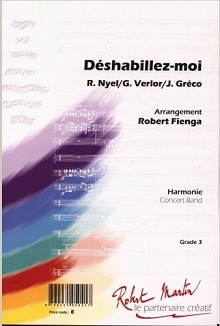In 1958 Friedrich Cerha, together with his wife Gertraud Cerha and fellow composer Kurt Schwertsik, founded the chamber ensemble “Die Reihe”, which set itself the task of making modern composers such as Alban Berg, Anton Webern and Arnold Schönberg known. “Born in 1926, he made us aware of how much new music needs the democratic spirit as a prerequisite in order to flourish,” Austria’s State Secretary for Culture Andrea Mayer said Tuesday. Cerha did not appear as an opera composer until 1981, when his work “Baal” was premiered at the Salzburg Festival and helped him achieve international fame.
The Austrian composer and conductor Friedrich Cerha is dead. He died three days before his 97th birthday on Tuesday in Vienna, his family told Deutsche Presse-Agentur. Cerha was considered one of the most important contemporary composers in the world. The artist created more than 200 orchestral, chamber and solo works. Among other things, he became known as the composer who completed Alban Berg’s opera “Lulu”. “I went from being an outsider to being a non-conformist,” Cerha told the Austrian news agency APA on his 80th birthday. Originally he was inclined towards neoclassicism, twelve-tone composition and serialism. With the orchestral work “Spiegel” he freed himself from such traditions in the early 1960s and created his own sound world. “I needed music like you need to breathe or your heart beats,” Cerha said in 2014 in a conversation recorded by the city of Vienna.
The son of an electrical engineer, he began violin lessons at the age of six and created his first compositions while still in school. Even before he could graduate from high school, he was drafted into the Wehrmacht in 1943. However, the convinced anti-fascist deserted and lived underground afterwards. After World War II, he first worked as a mountain guide before studying composition, violin and German language and literature in Vienna, among other things. Instead of recognition, Cerha repeatedly met with rejection at the beginning of his career as a composer, for example for the “Spiegel” cycle. “After the first performances, it was called an intellectual experiment, head music,” he said in a 2013 interview with his music publisher, Universal Edition. In reality, the work was born out of “an elemental need for expression” and helped him free himself from his wartime experiences, he said. In 2012 Cerha received the 200,000 euro Ernst von Siemens Music Prize, considered one of the most important music awards. Despite these and many other honors, the composer with the distinctive mustache always remained modest. “I have always felt very comfortable in my place between the chairs,” he said in an interview with broadcaster ORF.
You can find an excerpt of his (printed) works via the composer’s biography in the database
Source notes: www.stuttgarter-nachrichten.de – Photo Friedrich Cerha: ORF/Ursula Hummel-Berger






